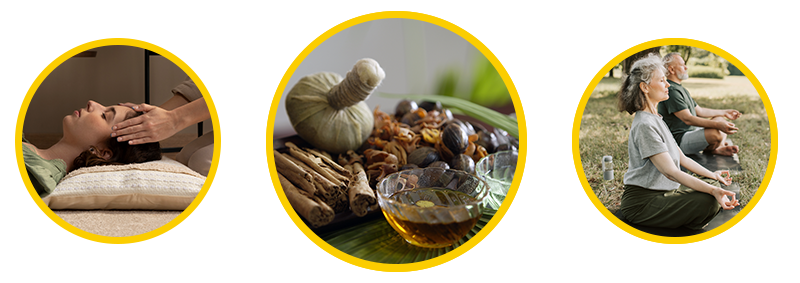
The intricate relationship between stress and anxiety has been widely explored across psychology, neuroscience, and behavioral sciences. Though these states share neural pathways, they have distinct characteristics that continue to be examined.
Stress is the body’s natural response to a challenge or demand, typically triggered by an actual or perceived threat, known as a stressor. When confronted with stressors, the body initiates a series of physiological and behavioral changes to restore balance. Stressors are broadly categorized into two types: internal (systemic) and external (psychological). Internal stressors include physiological disruptions like fluctuations in blood sugar levels or significant physical trauma. Psychological stressors, on the other hand, emerge from perceived threats, with anticipation playing a key role in the emotional response. This anticipatory nature of stress serves as a bridge between stress and anxiety.
According to the Diagnostic and Statistical Manual of Mental Disorders (DSM-5), fear and anxiety differ in their triggers. Fear is an immediate reaction to a present threat, whereas anxiety stems from the anticipation of future dangers. For instance, encountering an aggressive dog provokes fear, while knowing you will visit a place where such a dog resides may lead to anxiety.
Anxiety involves heightened alertness and vigilance in response to a perceived threat, even when the actual risk is minimal. It is broadly classified into two types: state anxiety and trait anxiety. State anxiety is a temporary reaction to a specific situation, helping in alertness and memory retention. Trait anxiety, however, is an ingrained characteristic that predisposes individuals to heightened anxiety, even in mildly stressful situations. These two forms often coexist, with state anxiety emerging in response to an individual’s underlying trait anxiety.
From an evolutionary perspective, anxiety has been beneficial in preparing humans to anticipate and avoid potential dangers. However, chronic anxiety or excessive responses to non-threatening stimuli can lead to distress and impairment. While psychological theories help distinguish different forms of anxiety, further research on its neural mechanisms is necessary for developing effective treatments.
Also, Read – Can Ayurveda Complement Cancer Care? – Insights from Tradition and Research
Causes of Anxiety
Anxiety results from a complex interplay of biological, psychological, and environmental factors. While certain triggers like medication use, substance dependence, past trauma, and childhood adversity are well-documented, other contributing factors include:
- Genetic Factors: A family history of anxiety or mood disorders increases susceptibility to anxiety conditions.
- Gender Differences: Studies suggest that women are more prone to anxiety disorders than men due to hormonal fluctuations and societal influences.
- Personality Traits: Individuals with low self-esteem or a cautious temperament in childhood may be more vulnerable to anxiety in adulthood.
- Chronic Health Conditions: Medical issues such as diabetes, thyroid disorders, and depression can intensify anxiety symptoms.
- Substance Use and Withdrawal: Stimulants like caffeine and amphetamines, as well as withdrawal from alcohol or sedatives, can trigger or exacerbate anxiety.
- Early-Life Trauma: Childhood experiences, including abuse, neglect, or an unstable home environment, increase the likelihood of anxiety disorders in later life.
- Sociodemographic Factors: Financial instability, educational background, and social support networks also play a role in anxiety susceptibility.
Download our app for ayurvedic treatment and therapies.
Symptoms of Stress and Anxiety
Both stress and anxiety manifest in various ways, affecting physical, emotional, and behavioral well-being. Common symptoms include:
- Sleep Disturbances: Difficulty falling asleep, frequent awakenings, or waking up feeling unrested.
- Irritability: Increased sensitivity to minor frustrations, leading to mood swings.
- Headaches: Persistent tension headaches or migraines worsened by prolonged stress.
- Cognitive Difficulties: Trouble concentrating, forgetfulness, and mental fog.
- Loss of Interest: Declining motivation for previously enjoyable activities.
- Emotional Distress: Persistent sadness, hopelessness, and in severe cases, self-harm or suicidal thoughts.
Since anxiety manifests differently for each individual, recognizing its symptoms and triggers can help in seeking appropriate support and treatment.
Effects of Stress and Anxiety on the Body
Chronic stress and anxiety not only affect mental health but also have far-reaching consequences on physical well-being, impacting various organ systems:
- Cardiovascular System: Prolonged stress raises heart rate and blood pressure, increasing the risk of hypertension, heart disease, and stroke.
- Nervous System: Anxiety disrupts neurotransmitter balance, leading to mood disorders, memory issues, and concentration difficulties.
- Endocrine System: Persistent stress results in excessive cortisol release, weakening immunity, disrupting metabolism, and contributing to insulin resistance.
- Digestive System: Stress influences gut health, leading to conditions like acid reflux, bloating, and irritable bowel syndrome (IBS).
- Immune System: Chronic stress weakens immunity, making individuals more prone to infections and autoimmune conditions.
- Musculoskeletal System: Stress-induced muscle tension can cause headaches, neck pain, and joint discomfort.
- Reproductive System: Long-term stress may lead to menstrual irregularities in women and reduced libido or fertility issues in men.
By adopting relaxation techniques, maintaining a balanced diet, and implementing lifestyle modifications, individuals can mitigate these effects and promote overall well-being.
Ayurvedic Perspective on Anxiety: Rajas, Tamas, and Mental Harmony

Ayurveda views anxiety as a Manodosha Vikara, primarily influenced by imbalances in Rajas and Tamas gunas, alongside an aggravated Vata dosha. The term Chittodvega derives from Sanskrit words—Chitta (mind) and Udvega (agitation or distress). The root word “Ud” signifies elevation or movement, indicating heightened mental unrest, which aligns with the Ayurvedic understanding of anxiety.
Ancient Ayurvedic texts discuss anxiety and emotional disturbances in various forms:
- Charaka Samhita classifies anxiety alongside emotions like desire (kama), anger (krodha), greed (lobha), attachment (moha), envy (irsya), arrogance (mana), grief (shoka), and worry (chinta).
- Dalhana, a commentator on Sushruta Samhita, relates anxiety to grief (shoka).
- Chittaviparya and Chittavibhrama in classical texts describe altered mental states resembling anxiety.
- Acharya Vagbhata uses the term Chittopaplava to denote mental turmoil similar to anxiety.
The Ayurvedic Perspective on Anxiety: The Role of Rajas, Tamas, and Mental Balance
Ayurveda understands anxiety as a Manodosha Vikara—a psychological disorder—primarily influenced by imbalances in Rajas and Tamas Gunas, alongside an aggravated Vata Dosha. The term Chittodvega is derived from Sanskrit, where Chitta means mind and Udvega refers to agitation or distress. The root “Ud” signifies movement or elevation, reflecting the restless and unsettled nature of an anxious mind.
Ancient Ayurvedic texts discuss mental imbalances extensively. Charaka Samhita classifies psychological disturbances (Manodosha Vikaras) alongside emotions such as desire (Kama), anger (Krodha), greed (Lobha), attachment (Moha), envy (Irshya), arrogance (Mana), grief (Shoka), and worry (Chinta). While Sushruta Samhita does not explicitly mention Chittodvega, its commentator Dalhana associates it with Shoka (grief). Other terms like Chittaviparya and Chittavibhrama, found in classical Ayurvedic literature, describe states of mental disturbance resembling anxiety. Additionally, Acharya Vagbhata uses the term Chittopaplava to refer to emotional instability.
The Impact of Rajas and Tamas on Mental Well-Being
Ayurveda attributes mental health to the balance of three fundamental qualities or Gunas—Sattva, Rajas, and Tamas. While Sattva represents clarity, harmony, and wisdom, imbalances in Rajas (activity and passion) and Tamas (inertia and darkness) can significantly contribute to stress and anxiety.
To get treatment of Panchakarma Virechana Body Detox, Call to Ayursh Ayurveda
Rajas: The Principle of Activity and Motion
Rajas governs movement, ambition, and dynamism. It is essential for motivation and goal-oriented actions. However, excessive Rajas can cause hyperactivity, mental restlessness, and emotional turbulence.
- Balanced Rajas: Promotes enthusiasm, clarity, and decisiveness, helping individuals remain engaged without undue stress.
- Excessive Rajas: Manifests as overthinking, irritability, impatience, and difficulty unwinding. Contributing factors include a hectic lifestyle, excessive screen time, irregular routines, and overconsumption of caffeine or processed foods.
Tamas: The Energy of Stability and Stillness
Tamas is responsible for rest, stability, and emotional resilience. While it supports relaxation and sleep, an excess of Tamas can lead to inertia, dullness, and lack of motivation.
- Balanced Tamas: Encourages deep sleep, emotional steadiness, and the ability to recharge effectively.
- Excessive Tamas: Results in mental fog, depression, lethargy, and apathy. Poor diet, physical inactivity, excessive sleep, and unresolved emotional distress can contribute to Tamasic imbalances.
Ayurvedic Interventions for Anxiety and Depression
Ayurveda offers holistic interventions to restore mental harmony by balancing Rajas and Tamas.
1. Medhya Rasayanas (Cognitive-Enhancing Herbs)
These herbs support cognitive function, reduce stress, and enhance mental clarity:
- Brahmi (Bacopa monnieri)
- Tagara (Valeriana wallichii)
- Mandukaparni (Centella asiatica)
- Shankhpushpi (Convolvulus pluricaulis)
- Ashwagandha (Withania somnifera)
- Jatamansi (Nardostachys jatamansi)
- Parasika Yavani (Hyoscyamus niger)
2. Manobalya Dravyas (Mood-Stabilizing Herbs)
These herbs uplift mood and promote emotional resilience:
- Jyotishmati (Celastrus paniculatus)
- Vacha (Acorus calamus)
- Akarakarabha (Anacyclus pyrethrum)
- Gandira (Myrica esculenta)
3. Rasayanas (Rejuvenating Therapies)
These therapies strengthen the nervous system and promote long-term mental wellness:
- Shilajatu (Purified Asphaltum)
- Amalaki (Emblica officinalis)
- Ashwagandha (Withania somnifera)
- Abhraka (Purified Mica Bhasma)
- Yashada (Zinc-based Rasayana)
- Mukta (Pearl Ash)
- Shukti (Oyster Shell Ash)
- Swarna (Gold-based Rasayana)
- Rajata (Silver-based Rasayana)
4. Aphrodisiac Herbs for Stress Management
Since chronic anxiety and stress impact reproductive health, Ayurvedic aphrodisiacs help restore overall vitality:
- Putranjiva (Putranjiva roxburghii)
- Kokilaksha (Asteracantha longifolia)
- Kapikacchu (Mucuna pruriens)
5. Satvavajaya Chikitsa (Psychological Therapies)
Ayurveda emphasizes mental discipline and emotional regulation through:
- Sadvrutta (Ethical and moral guidelines for a balanced life)
- Yoga (Postures that reduce stress and enhance well-being)
- Dhyana (Meditation techniques for mental clarity)
- Pranayama (Breathwork practices to regulate the nervous system)
Satvavajaya Chikitsa: Cultivating Mental Strength for Emotional Well-Being
In Ayurveda, Satvavajaya Chikitsa is a therapeutic approach that emphasizes mental resilience through self-discipline, counseling, and emotional regulation. It focuses on guiding individuals toward greater self-awareness and inner stability, helping them break free from persistent negative thought patterns and emotional distress. By fostering a balanced mind, this practice serves as a powerful tool for managing anxiety and depression.
Counseling: A Powerful Yet Underutilized Resource
Despite its effectiveness, counseling is often overlooked in mental health care due to societal stigma. However, seeking guidance and emotional support is a natural and essential aspect of well-being. Ayurveda highlights the importance of Satvavajaya Chikitsa in conjunction with Achara Rasayana—a discipline that encourages positive behavioral patterns, ethical living, and emotional clarity. Through structured guidance, self-reflection, and reassurance, individuals can develop emotional strength, overcome distress, and cultivate lasting mental balance.
Integrating Yoga, Pranayama, and Lifestyle Practices for Mental Wellness
A holistic approach to mental well-being extends beyond therapy and incorporates daily routines that nourish the mind and body:
- Yoga: Enhances concentration, emotional stability, and resilience.
- Pranayama (Breathing Techniques): Regulates the nervous system, reducing stress and anxiety.
- Meditation: Promotes mindfulness, inner peace, and greater control over thought processes.
- Physical Activity: Supports mental clarity and lowers stress hormone levels.
- Mindful Walking: Encourages present-moment awareness, grounding the mind in calmness.
Panchakarma for Anxiety and Depression: A Holistic Approach to Mental Wellness

Panchakarma, Ayurveda’s profound detoxification and rejuvenation therapy, plays a crucial role in managing anxiety and depression. In addition to herbal formulations, these therapies work holistically to calm the nervous system, enhance circulation, and restore mental equilibrium. Some of the most effective Panchakarma treatments for emotional well-being include:
Reference Link – Migraine Treatment in Ayurveda: Symptoms, Causes, Home Remedies, Diet, & Lifestyle Changes
1. Abhyanga (Full-Body Oil Massage)
A warm oil massage using medicated herbal oils, Abhyanga deeply nourishes both the body and mind. It improves blood circulation, relaxes the nervous system, and promotes emotional stability. Since anxiety and depression are often linked to aggravated Vata dosha, Abhyanga helps ground and soothe excessive nervous energy, fostering a sense of calm.
2. Shirodhara (Gentle Oil Flow Therapy)
In Shirodhara, a continuous, rhythmic stream of warm medicated oil or buttermilk (Takra) is gently poured over the forehead. This therapy induces profound relaxation, reduces mental stress, and balances emotions. By soothing the hypothalamus and regulating hormonal activity, Shirodhara is highly effective in managing mood disorders and sleep disturbances.
3. Nasya (Nasal Therapy)
Nasya involves the administration of herbal oils or medicated extracts through the nasal passages. Beyond clearing respiratory blockages, this therapy has a deep impact on cognitive function and emotional stability. Regular Nasya practice can help relieve stress, enhance mental clarity, and support overall nervous system health.
4. Karnapoorana (Ear Oil Therapy)
Karnapoorana is the process of filling the ears with warm herbal oil, soothing the auditory nerves and influencing brain function. This therapy is particularly beneficial in reducing nervous tension, calming anxiety, and fostering emotional stability.
By integrating Panchakarma therapies into a structured wellness plan, individuals can experience significant improvements in mental well-being, leading to a more balanced and peaceful mind.
Conclusion
Ayurveda offers a holistic path to mental wellness by addressing both the physical and emotional roots of anxiety and depression. A balanced diet, herbal formulations, and mindful lifestyle practices work alongside Panchakarma therapies to restore harmony in the body and mind. Ayursh provides expert-guided Ayurvedic solutions, including personalized treatments, dietary recommendations, and mindfulness techniques, to support emotional resilience and lasting well-being. Through these time-tested methods, individuals can achieve mental clarity, reduced stress, and a greater sense of inner peace.
Dr. Sri Ranjani Bhat will recommend suitable therapies tailored to address your specific health concerns, ensuring a holistic approach to wellness.


